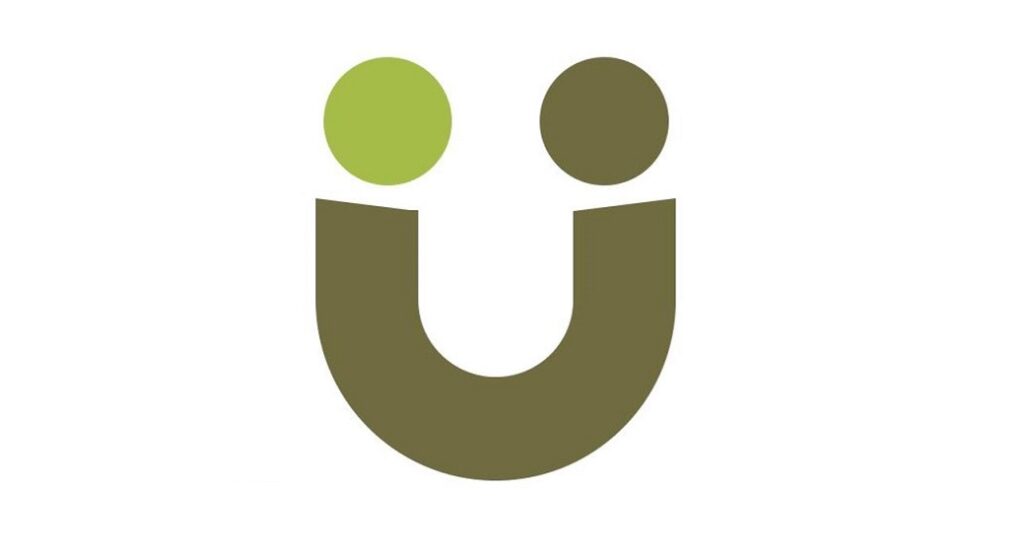Syllabus of IBPS SO HR exam
When preparing for the IBPS Specialist Officer (SO) Human Resources (HR) exam, many candidates face the challenge of not having a clear syllabus. This has led to a lot of guesswork, with preparations often based on insights from previous exam papers. At Human Peritus, our team has been analyzing these past papers for the past 8 years.
Our analysis of previous IBPS SO HR exam papers revealed something important: the UGC NET HRM (Human Resource Management) syllabus covers all the key topics of the IBPS SO HR exam. Essentially, the UGC NET HRM syllabus is the closest match to the IBPS SO HR syllabus. The topics required by IBPS for SO HR are basically a subset of the broader UGC NET HRM syllabus.
This finding is the foundation of our approach at Human Peritus. We consistently advise our students to thoroughly cover all the topics in the UGC NET HRM Code 55 syllabus. This strategy has led to great results in the past, and we believe it will continue to be effective for the January 2024 IBPS SO HR exam. Our plan for success in the IBPS SO HR exam is to fully understand and study the UGC NET HRM syllabus.
For our students’ convenience, we have outlined the UGC NET HRM syllabus, which is key to mastering the IBPS SO HR exam. This alignment has been our guide and promises to help our candidates excel in their IBPS SO HR preparation.
Although there is no explicit mention of following acts in the syllabus, you need to study them, as well:
- Employee Compensation Act 1923
- Unorganized workers Act 2008,
- Maternity Benefit act 1961
- ESIC Act 1948
Principles and Practices of Management: Development of management Thought,
- Contributions of Taylor, Fayol, Mayo, Mary Parker Follett and C.I. Barnard.
- Behavioural Approach,
- Systems Approach,
- Quantitative Approach and
- Contingency Approach.
- Function of Management: Planning and Decision Making, Organising, Staffing, Directing, Controlling, Coordinating.
- Human Resource Management: Conceptual framework,
- Job Analysis, Human Resource Planning
- Recruitment, Selection,
- Placement, Induction,
- Training and Development,
- Performance Management,
- Job Evaluation,
- Compensation Management,
- Employee Benefits and Incentives,
- Managing Career.
- New Trends in HRM: Changing environment of HRM and ontemporary challenges, Emerging HRM Concepts.
Human Resource Development (HRD): Concepts, Assumptions, Values,
HRD Mechanisms, Action – research Model,
HR Accounting and Audit,
Consultant – client relationship,
Knowledge Management,
Human Resource Information System.
International Human Resource Management (IHRM): Organisational context of IHRM,
IHRM and Sustainable Business,
Functions of IHRM,
HRD Culture and Climate, HRD Interventions,
Cross – Cultural Studies, Cultural Diversity,
Transnational Organisations,
IHRM models.
Organisational Behaviour: Concept, Scope, Nature of human behavior,
Personality,
Perception,
Learning,
Attitude,
Motivation,
Interpersonal Behaviour,
Group Dynamics,
Leadership,
Communication,
Power and Authority,
Stress,
Organisational Change and Development.
- Industrial Relations: Concept, Scope, Evolution, Approaches, Actors and Models,
- Conflict and cooperation, Bi-partitism, Tri-partitism,
- Collective Bargaining,
- Workers’ Participation in Management,
- Grievance Handling and Disciplinary Action, Code of Conduct,
- Employers’ organisations.
- Trade Unions: Concepts, Evolution,
- Problems of trade unions in India, Recognition,
- Industrial Relations in changing scenario,
- The Trade Unions Act, 1926.
- Emerging role of trade unions in India.
Industrial Disputes: Factors, Forms, Trends,
Prevention and Settlement, Role of State and Central Labour Administration,
The Industrial Disputes Act, 1947,
Strikes and Lockouts,
The Industrial Employment (Standing Orders) Act, 1946.
- Labour Legislation: Objectives, Principles, Classification and Evolution.
- International Labour Organisation,
- Social Justice and Labour Legislation,
- Indian Constitution and Labour Laws.
- The Factories Act, 1948.
- Mines Act, 1952.
- The Inter-state Migrant Workmen (Regulation of employment and conditions of service) Act, 1979.
- Contract Labour (Regulation and Abolition) Act, 1970.
- The Building and other Construction workers (Regulation of employment and conditions of service) Act, 1996.
- Child Labour (Prohibition and Regulation) Act, 1986.
- Wages: Concept, Types, Factors influencing wages, Wage Theories and Wage Differentials
- The Minimum Wages Act, 1948.
- Payment of Wages Act, 1936.
- The Payment of Bonus Act, 1965.
- Equal Remuneration Act, 1976.
- Payment of Gratuity Act, 1972.
- Employees’ Provident Fund and Miscellaneous Provisions Act, 1952.
Labour Welfare: Concept, Scope, Types, Theories and Principles,
Industrial Health and Hygiene,
Occupational Diseases
Industrial Accidents and safety,
Social Security: Concept and Scope, Social Assistance and Social assurance.
- Labour Market: Features,
- Demand and Supply of Labour,
- Nature and Composition of Indian Labour Force,
- Unemployment and Underemployment,
- Types of Labour Market,
- Characteristics of Indian Labour Market,
- New Dynamics of Labour Market in India,
- Economic Systems and Labor Market,
- Problems of Labour in India.
Contact Us

Email: contact@humanperitus.com
Phone: 9717781110
Address: Human Peritus, Floor 5, Building C, Unitech Cyber Park, Gurgaon, 122002
Syllabus of IBPS SO HR
Study Material & Coaching Classes
FAQs- IBPS SO HR exam
Yes, it is true that the IBPS has not disclosed any syllabus for the SO HR exam. Thus, neither there is any official syllabus, nor anyone has access to any previous years papers.
We, at Human Peritus, have been analysing questions every year (memory based by speaking to our students). This year’s wise analysis is also given below.
Based on analysis of previous years’ papers, we came to the conclusion, the syllabus of UGC NET HRM covers all the topics, which are asked in IBPS HR exam. In fact IBPS HR requirements are a subset of coverage from the syllabus of UGC NET HRM.
Thus, every year, we advise our students to cover all keywords from the syllabus of the UGC NET HRM Code 55. Till now, this strategy has worked well and we are hopeful that it will work in Jan 2024 also for IBPS SO HR. Thus, our plan for IBPS SO HR is to cover all syllabus of UGC NET HRM. This syllabus has been given below.
Following questions were asked from the paper held on 30 Jan 2022:
Collective Bargaining types,
Mines Act 1952 – Age for hazardous work
Maternity Benefit Act 1961- Minimum umber of days required to get the benefit
Employee Compensation Act 1923- Relevant factor
Industrial Disputes Act, 1947- Conciliation process
Payment of Wages Act, 1936– Definition of wages
Minimum Wages Act, 1948- Definition of Fair Wage, Living wage
Payment of Gratuity Act, 1972- 5 years limit
Trade Union Act, 1926- Minimum number to form TU
Factories Act, 1948- 1 question
Code of Wages has which labour acts included
Article 15
Theories of labour welfare
Approaches to IR- System approach
Methods of HR forecasting- Delphi
Worker participation in Management
Strike and Lockout
Big 5 model of personality
HR Interventions
Types of Training
Sensitivity training
SHRM
Job rotation
Job enlargement
Job Analysis
Intelligence tests, Aptitude tests
Career Anchors, Career Path
Seasonal employment- Payment of Gratuity
Geocentric and Polycentric approaches of HR
Mc Lellend theory of motivation
Max Weber theory of Management
Calculation of overtime wages
Hidden knowledge – Tacit Knowledge
Marginal productivity- labour market
External and internal recruitment comparison
List of Tripartite organizations
No questions were asked from the following Labour Laws
Child and Adolescent Labour Act, 1986- no question
Contract Labour (Regulation and Abolition) Act, 1970- no question
Building and Other Construction Workers Act, 1996- no question
Inter-state Migrant Workmen Act, 1979- no question
Employees’ State Insurance Act, 1948- one question
Unorganised Workers’ Social Security Act, 2008- no question
Employees’ Provident Funds Act, 1952- no question
Industrial Employment (Standing Orders) Act, 1946- no question
Questions were asked from the following topics in the paper on 25 Jan 2020:
Employee’s Compensation Act, 1923 Industrial Disputes Act, 1947 Payment of Wages Act, 1936 Minimum Wages Act, 1948 Maternity Benefit Act, 1961 Payment of Bonus Act, 1965 Payment of Gratuity Act, 1972 Employees’ Provident Funds Act, 1952 Trade Union Act, 1926 Factories Act, 1948 Mines Act, 1952 Employees’ State Insurance Act, 1948
From IR, the questions were from expected topics like Collective Bargaining, ILO, Strikes, Lockout, Layoff, Grievance Management, developments in MoLE.
Again expected questions from HR and OB like, difference between recruitment and selection, performance appraisal, compensation, succession planning, HR accounting, HRD, career planning, stress management, Theories of management (name of thinkers), Communication, decision making, learning, leadership etc.
Questions were NOT asked from following Acts in Jan 2020:
Child and Adolescent Labour Act, 1986 Contract Labour (Regulation and Abolition) Act, 1970 Building and Other Construction Workers Act, 1996 Inter-state Migrant Workmen Act, 1979 Unorganised Workers’ Social Security Act, 2008 Constitutional Provisions for Labour Welfare Equal Remuneration Act, 1976 Industrial Employment (Standing Orders) Act, 1946 Code of Wages, 2019
The list of questions, which were asked in 27 Jan 2019 exam, is given below.
HR Demand forecasting, Job analysis, Job evaluation, Staffing, Aptitude tests, Stress interview, methods of performance appraisal, HRIS, MBO Gagne Brigg theory, Leadership theories (2 questions), 2 questions on training methods, Difference in Grievance and Disciple, Strike in Industrial Disputes Act, Theories of IR, Theories of Trade Union, Labour market, Frictional unemployment, Arbitration, Few questions on factories act, Superannuation, Dismissal in Industrial Disputes Act, ERG theory, Needs’s theory, Wild cat strike, more questions on Industrial disputes Act. BARS Cost of living Index Retrenchment Code of Conduct Wage Differentials Exchange theory
Some of the reasons, why you should consider us are:
1. Human Peritus is “uniquely positioned” to assist you for the IBPS SO HR exam. We have been trusted guide to students for last 10 years for various HR/Labour laws based exams like IBPS, UPSC ALC, UGC NET HRM (Code 55), UPSC EPFO, HR officer with Banks and PSUs etc.
2. We do not just teach, we take responsibility for the outcome. After every exam, we analyze, how many questions came from our course. We publish this analysis on the website. Then we improve our course. Then again analyze after the next next exam and improve the course..and so on….By doing it over the years, we have reached a stage, where consistently more than 80-90% of questions are from our course.
3. We have consistently maintained a high quality of teaching in video classes. The classes are not just 30,000 feet overview, but with detailed conceptual understanding. Do not just believe us. Take some trial classes with others. Then check our classes. Compare the style and quality of teaching. You may also check few recorded classes in the middle of this page.
4. Not only we teach well, we also take responsibility, if it is sufficient from coverage point of view. With us, you need not study any other book. You also need not look at previous papers. Not even current affairs. Nothing else. You are unlikely to get this confidence of “depend completely on us”, anywhere else.
5. And yes, thousands of students have realized their dreams with Human Peritus since the year 2011. You can check video interviews of hundreds of them by clicking here.
Since the inception in 2011, our preparation approach has been quite traditional. First, we do a lot of research in analyzing the “boundary” of the syllabus. Then within that boundary, we provide “maximum possible coverage” of concepts. What we do not do, is to try to find out what is more important or less important within that boundary. We study everything like a dedicated student.
We believe that there is no one, who can guess important questions in objective exams (yes, we can identify some most repeating concepts; but is that sufficient for securing a seat?….NO). The only way to crack Coal India exam is to cover the full syllabus within boundary >> Then practice a lot of questions from that topic>> and you are ready for that topic. So, if you are enrolling with Human Peritus with the hope that, we know important questions, which will come in the exam, DO NOT JOIN US.
Second thing, the preparation takes time. We do not have any magical formula to cover everything in 10 days. We never conduct the crash courses, because we believe that you cannot cover 100% syllabus in a crash course. We make a plan >> we follow the plan >> we expect you to do what we advise you >> and you are ready for the exam. If you do not have time and patience, DO NOT JOIN US.
Third thing, we are enablers in the preparation. We do many things to make it easier for you like bring conceptual clarity, make content concise for you, assure 100% coverage, make you practice questions, sometimes even motivate and guide you. But all this is waste if you do not put in the hard work. DO NOT JOIN US, if you are not ready to work hard for the next 1-2 months.
From a coverage point of view, the Study Material will give you 100% coverage, but the probability of selection is much higher (4 times) in video classes program, because of the following reasons:
(i) a Large number of topics require conceptual clarity, which will need a teacher to make it easier, like Labour Laws, OB Theories.
(ii) With tips and tricks, the teacher makes it easier to remember.
(iii) If it takes x hours to prepare without a teacher, then it will take only 0.4x hours with a teacher. Since time for IBPS HR exam is limited, you need someone to make it quicker for you.
(iv) You get into discipline because now someone else is pushing you towards completion of the syllabus (this is the biggest contributor)
(v) While teaching, the teacher explains how questions are framed from a given topic.



